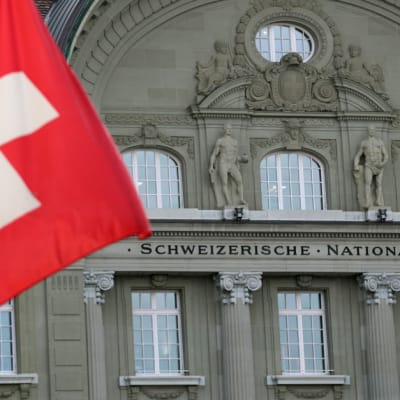Fixed Income Market overview
March brought heightened geopolitical turmoil with landmark developments in both the US and Europe seeing Fixed Income post its first negative month of the year, culminating in the unveiling of an enormous tariff program in early April which sent vast risk off waves across markets. Focusing just on March moves, prior to the April announcements, European treasuries were the sizable underperformer, whilst spreads in high yield also suffered. US Treasuries were the only positive for the month, also supporting US IG corporate total returns to near flat for the month. Sectoral spread moves were broadly in line, with the only notable underperformance coming in the final week of the month from Autos as the crosshairs of tariff action fell upon them.The month began with a sharp U-turn on fiscal spending rules in Europe, as the new German administration drew up plans to remove fiscal spending limits and push through an unprecedented fiscal package of infrastructure and defense spending. The market reaction was equally unprecedented, with bunds delivering the largest 1 day move in over 30 years, rising ~30bps on the day. The move comes to compensate for the loss of reliance upon US military support under the new Trump administration, with their shift in stance on the Russia-Ukraine situation causing a sudden shock to international allegiances. In a quite remarkable move, the plan was passed through the incumbent Bundestag, before the first sitting of the newly elected government, to ensure its passing, underlining the urgency deemed necessary by European powers to get it over the line. Not to be outdone, the political action on the other side of the Atlantic was equally as drastic. The Trump administration ramped up tariff talk and action, with targeted measures on several close trading allies, ranging from Candain Lumbar to European wines. The largest of which came towards month end, with a 25% tariff on autos globally, with a warning that tariffs plans were real and not just for negotiation purposes. The start date of these measures was added to an agenda for April 2nd, which was increased in prominence and dubbed 'Liberation day', with promises of unveiling a full tariff program. The unveiling of the April 2nd tariffs was a monumental event, with the levies coming in much higher and broader than anticipated. A minimum level of 10% globally was implemented (with the notable exclusions of Canada and Mexico) with what was described as a reciprocal tariff regime applied to others. However, the numbers showed little resemblance to actual tariffs levied on the US, being more closely linked to trade balances as a percent of US exports. This left Emerging economies particularly hit, with the EU and Japan also heavily hit. Fall out is ongoing but the market reaction has been heavily risk off, with spreads spiking higher and yields falling, as negative growth concerns heavily outweighs the upside inflation impact.Central bank meetings in the month were largely as expected, with the Fed holding and ECB cutting, but both unwilling to commit to their next moves with such uncertainty around the impact of fiscal events. The Fed in particular now faces a stagflationary mix which will be particularly complex to navigate, particularly as clarity on trade policy's impact likely won't be seen in hard data fully for a few months at least. Macro data itself continued to look weak growth wise in US soft data, but hard data still painted a more robust picture. Elsewhere, advancement on solutions on global conflicts saw a lot of noise, but ultimately little concrete improvement. In fact, the middle east conflict moved in the opposite direction, with a breakdown in the Israel-Gaza ceasefire seeing military strikes resume. Finding a resolution in Ukraine - Russia also hit a wall, with highly conflicting demands for a truce making for very little common ground.The tariff upheaval has accelerated the re writing of the geopolitical status quo, global trade relations being completely rewritten. The market has clearly chosen the side of recession fears over inflation concerns, which should continue to favour duration even after these sharp moves lower in yields. The risk off episode has been blanket and hit credit hard at a blanket level, but with such repricing comes the chance the pickup fundamentally robust names that have been caught in the crossfire and offer alpha potential. In risk off epsiodes, remaining nimble and ready to act is vital, as such times usually offer the best opportunities for alpha, but selectivity remains key.
Portfolio activity
The primary market remained active throughout March despite the weakening backdrop. We maintained our pricing discipline as, in our view, many issuers were able to issue through what we consider fair value. We added only one new issue this month:Eurofins Scientific (French healthcare company) suffered from short seller reports and some operating weakness in 2024 meaning Eurofins has come under intense scrutiny from investors. The company refinanced their hybrid bond callable on Nov-2025 however had to pay a material premium to successfully issue this new bond. We remain comfortable with the name as the short seller reports were inaccurate and the company operates in a highly specialised and cash generative sector. There were several idiosyncratic events in individual companies that we acted upon in the secondary market:Infrastrutture Wireless, (Italian telecommunications operator) is a solid telecom tower operator with two material shareholders owning >30% each. Recent actions have indicated their desire to increase ownership in the company. Bonds contain Change of Control clause that we believe is likely to be triggered allowing holders to put the bonds back to the company. This gives a potential 5 points of upside and limited downside risk, so we added this position.Elo Saca (French retailer) reported strong earnings in their 2024 results publication, including good liquidity and the announcement of a EUR 1bn asset disposal to reduce debt. We added the bond maturing in 2027, which the company intends to repay imminently and provides good value.
Performance and characteristics
In March the fund underperformed its benchmark. The fund's allocation to BBs detracted from performance as crossover-rated bonds underperformed higher rated ones. There was a negative contribution from security selection, particularly within sectors that had previously outperformed as they retraced some of their gains, partially offset by a positive contribution from security selection within the telecommunications sector. The new issue market has been active but challenging, with new issues often pricing in line or through fair value. We have maintained pricing discipline, only participating where we see value.YTD the fund underperformed benchmark. The fund's allocation to BBs detracted from performance as crossover-rated bonds underperformed higher rated ones. Security selection within the retail sector contributed positively but this was offset by a negative contribution in other sectors. Top single name contributors to performance real estate firm Immobiliare Grande Distribuzione SIIQ and French retailer Auchan. The largest detractor from performance was an AT1 bond from NatWest Group, which retraced some of its strong performance from the end of 2024.









